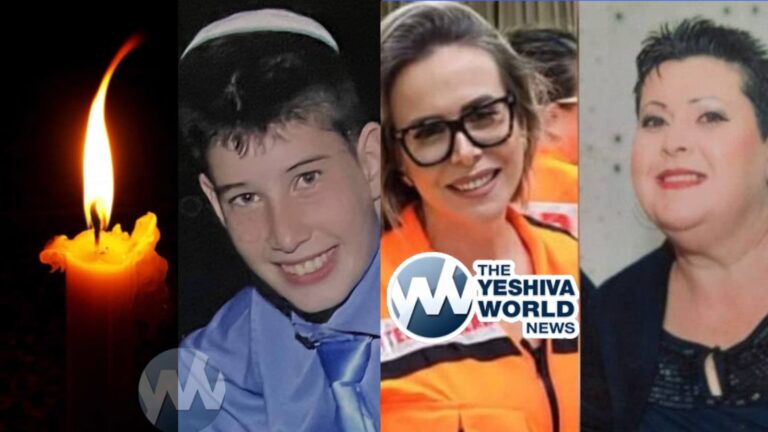(by C.B. Lieber – Originally published in Mispacha Magazine)
Have you ever heard of the Camp Munk Circus? An annual tradition for over 60 years, the circus is the high point of the summer for Camp Munkers (“Munkies,” as they’re called), as well as for their delighted audiences. Let’s go behind the scenes with Yosef (“Reb Joe”) Wartelsky, current producer of the circus, to find out what’s involved.
Speak to Reb Joe Wartelsky, and you’ll hear the energy in his voice, the enthusiasm and love that he has for Camp Munk and its annual circus. It’s been part of his life for the past 24 years, and he’s eager to share this fantastic event with others.
Let’s start from the beginning: What is the Camp Munk Circus, and how did it develop?
The circus was the brainchild of Reb Josh Silbermintz, Camp Munk’s head counselor for decades, explains Reb Joe. “Originally it was a night activity, not open to the public. Then the camp started inviting parents to watch their kids perform, and it snowballed into a full-blown show.
“Sixty years ago, the frum audience didn’t have access to all the shows they have now,” he adds. “The Camp Munk circus was a huge deal, since it offered kosher entertainment and a fun night out. Regular circuses didn’t have the male-performers-only option that they have today. It was an affordable, clean show.”
For people who attend the circus each year, it’s created many fond memories. And for the campers, it’s incredible!
Reb Joe himself started out as a camper in the youngest bunk in 1993. At that time the circus was being produced by Reb Dave Silverman, who was a driving force behind it for many years. A “Munkie” through and through, Reb Joe has been in Camp Munk since that first year, with a break of only two years when he worked as head counselor in a day camp. “I was a camper, a lifeguard, head lifeguard, and then came back as married staff,” he says. Now he’s one of the head counselors.
Camp Munk is a relatively small sleepaway camp, so circus tryouts are open to any camper who wants to participate. Generally 30-40% of the campers are involved, Reb Joe says. The biggest challenge they face each year? To up the quality of the show without compromising on Camp Munk standards.
“The gadlus of the show is twofold,” Reb Joe declares. “First, it’s being performed by staff and campers in a regular camp, not professional performers. The second is that we’re also running a camp while we do it! We start pulling the whole thing together only seven to nine days before the show.”
Things don’t always go so smoothly, though! If the weather is rainy, the camp can be scrambling with tarps to make sure the stage and props stay dry. Yet from a chinuch perspective, Camp Munk loves the fact that they’re providing an extra outlet for the kids.
“I’m a big camp fan. If I called the shots, camp would be six months of the year and school would be six months of the year,” Reb Joe jokes. “There are so many different areas where kids who aren’t feeling success in school can feel successful, whether it’s singing, comedy, or art. In camp, kids are encouraged to use a talent that they might have never known they had.
“Not just in the performing, but also in leadership and managerial roles, the kids get to discover new talents. It’s very fulfilling, and it’s a great experience. Unlike color war, there’s no competition; everyone’s on the same team. And since its inception, all the circus proceeds have always gone to tzedakah.”
What kind of acts does the circus put on? “Many camps pride themselves on doing new and better things each year, but by us, it’s mesorah, mesorah, mesorah,” Reb Joe shares. “Although the acts themselves are similar from year to year, we always add new shtick and different twists.”
There are skits, acrobatics (whose performers the camp calls Munkrobats), choir, precision marching, and more. Reb Joe has been involved in many different parts of the circus, but his job as producer is to make sure each act goes smoothly. “I don’t usually get to watch it,” he explains, “because I’m busy making sure things are moving along. Once everyone’s costumed up, we have a little pep talk. Then the lights go off, and it’s very exciting.”
About 1,500-3,000 people attend the circus each year, which puts a lot of pressure on the performers! But Reb Joe always tells the kids that the difference between a good performer and a bad one is not how perfect your act is, but how you react when things go wrong. “If you’re able to smile and move on, it makes all the difference,” he says. “Something is bound to happen, but bli ayin hara, in all the years, the mistakes have always been small; we’ve never had to stop the show.”
One year, for example, during a lip sync, the tape the performers were using got stuck in the middle. The performers froze, but the previous producer, the unflappable Reb Dave, quickly fixed the tape ribbon and got it going again. “As soon as the audio came back on, the performers continued without missing a beat,” Reb Joe recalls.
Another time, a comedy skit that Reb Joe himself was acting in required a video presentation, and the video didn’t go on. “I had to ad lib lines, and those lines became the most memorable.”
Once the performance is over, the feeling is phenomenal. “The kids are celebrating, hugging each other, complimenting each other, and the parents are there, shepping nachas,” Reb Joe says.
As director, Reb Joe loves watching the kids develop their middos and talents as they work together. “One camper excluded himself from an act because he knew that a different kid wouldn’t get a part if he tried out. I see a lot of that type of thing.”
The goal of the circus, ultimately, is to create a kiddush Hashem. As producer, Reb Joe takes great pride in what the circus has accomplished over the years – and especially on the impact it has on the performers. This impact, he believes, is the take-home message for all of us. “Over the years I’ve found people – campers and staff – who just haven’t found their ‘thing.’ I believe that everyone has an area in which they can excel and be mekadesh sheim shamayim. It’s something different for everyone, but there’s something there for each person.”

(YWN World Headquarters – NYC)











